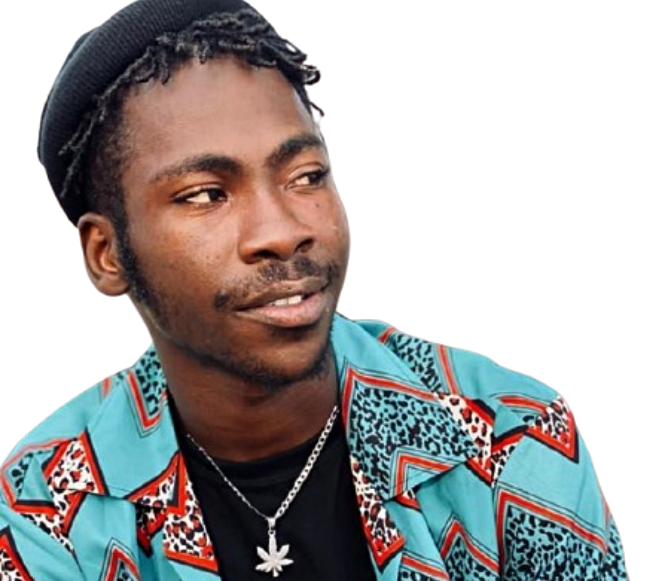Gambiaj.com – (Banjul, The Gambia) – A revealing interview by Gambian music sensation Abdou Gaye, popularly known as Attack, has triggered a nationwide debate over ethnicity, favoritism, and media bias in the country’s entertainment industry. Speaking on West Coast Radio’s Coffee Time with Peter Gomez on Friday, the artist alleged that tribalism continues to undermine the growth of Gambian music and poses a serious threat to national unity.
Known for his Afrobeat and dancehall fusion enriched with Wolof lyrics and traditional rhythms, Attack said his musical journey has always aimed to promote a Gambian identity that resonates globally.
“Hip hop is best done by the people who were born into that culture. We have to sell our identity if we want to stand out.”
But even as he pushes for authenticity, Attack said his efforts are hampered by ethnic favoritism that infects both industry gatekeepers and media platforms. “Tribalism is the biggest problem weakening Gambian music,” Attack told veteran broadcaster Peter Gomez. “It’s not just in politics—it’s in the music too. I’ve been a victim—and I’m still a victim.”
Accusations of Media Bias
Attack directly accused certain media houses—especially those allegedly owned or influenced by Mandinkas—of sidelining non-Mandinka artists.
“They don’t post my big moves or achievements. But the moment something negative happens, they’re the first to amplify it—and even add spice,” he said. “We are supposed to unite under one Gambia. But some people choose their own, even in projects that are meant to promote collective progress.”
He warned that if left unaddressed, these divisions could stoke tensions reminiscent of past conflicts in other African nations.
“This is how wars started in places like Rwanda and Sierra Leone. We need to wake up before it’s too late,” he cautioned.
Swift Backlash
Attack’s comments were met with sharp criticism from various industry figures, who accused him of inflaming tribal tensions and lacking professionalism.
Pa Modou Bojang, a journalist and owner of Home Digital FM, said, “Attack should attack his decadent talent rather than attacking Mandinkas for being his problem and frustration.”
Communications expert and music insider Bankie Grey-Johnson was more scathing:
“Attack’s interview on Coffee Time clearly shows the lack of a management structure with good PR. He sounds paranoid… Using a platform like Coffee Time… to spew your malicious ideas on what you perceive as a conspiracy tells a lot about your self-serving stance.”
He added that favoritism is common in every industry and often based on relationships and years of collaboration—not tribal politics.
Social commentator Yusupha Jow also questioned Attack’s delivery and coherence:
“He started strong but soon became incoherent. His claim that Mandinka media doesn’t support him because he’s Wolof was poorly argued and deeply irresponsible.”
Jow also advised the artist to seek mentorship or communication coaching before future media engagements.
Attack Responds with Clarification Video
Facing mounting backlash, Attack took to social media to issue a nearly ten-minute video doubling down on his critique while clarifying that his intention was not to attack the Mandinka community.
“I’m not trying to divide Gambia. I’m trying to unite it,” he said. “The media houses I mentioned were those that support only artists from their own tribes. That’s what I’m against—not the Mandinka people. In fact, many of my fans are Mandinkas.”
He emphasized that his frustration stemmed from years of being sidelined and that the industry should move beyond tribal classifications.
“You don’t have a media house and just be there for your own artists. It can’t work like that. Gambia has to be one,” he said. “I’m calling for unity and fairness, not tribal division.”
Attack also referenced instances where his team was allegedly excluded from media opportunities, saying such experiences had pushed him to finally speak out.
A Divided Industry
While some observers acknowledged that the music industry does suffer from favoritism, many criticized the way Attack presented his grievances—arguing that his message was overshadowed by his delivery and the dangerous undertones of his remarks.
The controversy has now sparked broader conversations on how ethnicity, media influence, and artist promotion intersect in The Gambia, a country that prides itself on peaceful coexistence among diverse communities.
Whether this moment becomes a turning point for introspection or deepens existing divisions remains to be seen. But for now, Attack has brought the hidden tensions within the Gambian entertainment world into the national spotlight.










